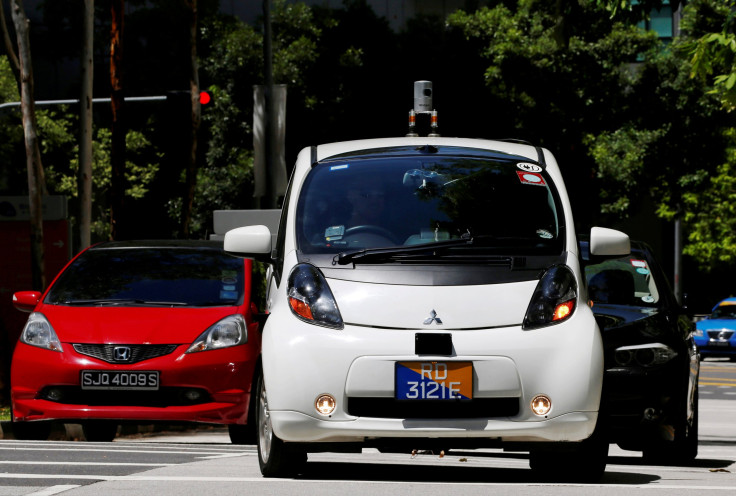Self-Driving Cars Will Improve Traffic Flow, Perform Better Than Human Drivers, Study Says

It is no secret that human driving is erratic, inconsistent and highly prone to accidents. Not just that, the stop and go style of driving in traffic causes accidents and mars fuel efficiency.
Even a few self-driving cars on the road could change the way traffic works according to a new research.
“Our experiments show that with as few as 5 percent of vehicles being automated and carefully controlled, we can eliminate stop-and-go waves caused by human driving behavior,” said Daniel B. Work, assistant professor at the University of Illinois at Urbana-Champaign, a lead researcher in the study published Tuesday.
Read: Apple Self-Driving Technology: 5 Facts You Need To Know
According to the study, even if all cars on the road are not self-driven, just the presence of a few such cars will help in better traffic monitoring and control. The introduction of self-driven cars on road could change conventional traffic control concepts such as variable speed limits.
The research team comprised of researchers with expertise in traffic flow theory, control theory, robotics, cyber-physical systems, and transportation engineering and conducted their tests in Tucson, Arizona using a single self-driven vehicle with at least 20 human-driven vehicles.
They found that human driving causes major traffic jams, even in the absence of traffic signals and bottlenecks, erratic lane changes, mergers and disruptions. They were able to sort out the traffic, by simply manipulating the one self-driven car, concluding that even a small percentage of self-driven cars on the road could smoothen out traffic flow for all the other cars, eliminating jams and even increasing fuel economy for all cars on the road up to at least 40 percent.
"Before we carried out these experiments, I did not know how straightforward it could be to positively affect the flow of traffic. I assumed we would need sophisticated control techniques, but what we showed was that controllers which are staples of undergraduate control theory would do the trick,” Jonathan Sprinkle, an associate professor of electrical and computer engineering, associated with the research, said.
The research also suggests that even current technology such as adaptive cruise control could help in better traffic control. Not just self-driven cars, even connected cars with communication with each other could help control traffic better.
To succeed in making a practical change to traffic functioning, researchers will need to develop a deeper understanding of the dynamic that emerges from having both human drivers and self-driven vehicles on the road. Not just that, the scope of research could be expanded once more self-driving cars hit the roads.
Read: Uber Self-Driving Car Crash Won't Stop Autonomous Program, Vehicles Back On Road
That being said, the research brings out an important fact, even though we are far away from having all or even most self-driven cars on the road, yet we might see changes in how everyday vehicle-related systems such as traffic change with the gradual introduction of such cars. This might be a boost to companies and researchers working on the technology, especially after the recent spate of self-driving car accidents.
© Copyright IBTimes 2024. All rights reserved.











